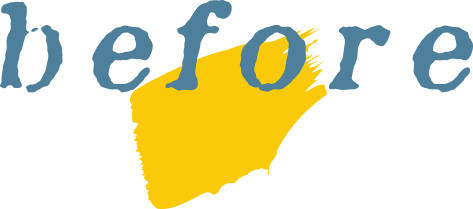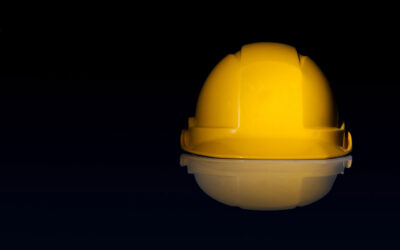Let’s face it: in 2022 the idea that to get the most we must squeeze as much as possible for eight consecutive hours (or more) is no longer credible.
Numerous studies confirm that an employee engaged for 8 consecutive hours will see his performance curve drop dramatically as the day progresses. On the other hand, many companies are experimenting with practices such as the short day or the short week, and the results have been enormously positive.
On the other hand, the principle is simple: the human being is not physiologically able to maintain high-level performance for a long time without taking breaks.
So what is the best relationship between rest and activity periods to get the most out of yourself? The answer, as you can imagine, is not unique, it depends on numerous factors including, first and foremost, the type of activity itself, the type of break and above all the specific predisposition of the individual.
But let’s see some general principles that will make you think again when you see your collaborator resting and that will push you to consider that break as a fundamental part of his work.
The short cycle
Each of us has “work cycles”, ie times in which, by consciously alternating activity and rest, we are led to increase our ability to maintain attention and the quality of our work.
Generally these modules can be 30, 60 and 90 minutes. Over 90 minutes, various studies show a physiological and drastic drop in performance. Therefore, consider as a good rule to take a break of 5 minutes every 30 minutes of work, or 10 every 60 or 15 every 90.
Obviously to maximize the yield we will have to make sure that outside the breaks our attention is totally dedicated to the work, avoiding distractions and interruptions.
Quality of the break
There are breaks and breaks. The principle to be followed is that of differentiation. To be clear: if my job is shoveling concrete, my ideal break will be a short rest with my eyes closed in which I can relax my body and recover energy. If my business is to sit in front of the computer and look at graphs, my ideal break would be to move my body, take a short walk and a bit of stretching, or rest my eyes looking out the window. trees in the distance.
What is to be avoided is to spend the breaks carrying out actions similar to the activity I am carrying out. So if you are bent in front of the PC, do not take breaks by staying bent in front of the cell phone! Simple, isn’t it?
The theorem of opposites
As you can see so far, the techniques proposed follow a principle of alternation of opposites, in which pauses and differentiated activities alternate, and the more the two moments are differentiated, the better.
This principle can also be applied broadly, for example in weekly, monthly and annual cycles.
If you think about it, holidays already follow this logic: a long period of work alternates with a short period of total absence (hopefully) from work. In fact, nothing worse than a vacation from which you return tired and from which you would like the classic “vacation from vacation” to recover…
Basically you have to find your way to skilfully alternate your “different moments”: if you are constantly in contact with people, take half a day a week, or a weekend a month, of total solitude. If, on the other hand, you are a computer animal and your interactions take place only via a screen, a little company and laughter is for you.
So remember: the secret is to balance with the opposite to get back into balance.
Listen to your body
Having said that, the most important rule is always to listen to yourselves. Your body, remember, is much wiser than you, it always knows what it needs and tells you clearly: there may be a moment when you feel you need a longer pause, or a total detachment, others in instead you feel that you can give more and pull a little more.
Experiment!
Finally, remember to experiment: find the right technique for you, which allows you to be as productive as possible without killing yourself. Learn to balance yourself quickly and effectively, experimenting with various modalities until you find the one that feels good and effective at the same time.
Altri articoli
Less stress and more energy thanks to Trust Management
Any corporate context is formed in its fundamental essence by the relationships that develop and define it. And every human relationship is based on the presence (or lack) of trust. This is why it is so important to know how to evaluate, support, improve and develop...
How to get the most out of synergies thanks to collective intelligence
Every group, as we know, forms within itself an entity that is greater than the sum of its parts. But how is it possible to exploit this added value without it becoming, as often happens in the company, a dispersive and inefficient movement? One of the simplest and...
Reduce accidents by changing the perception of the concept of safety
Several studies have shown that business accidents are due in 80% of cases to human errors. Starting from this data, it is obvious that to reduce injuries it is more appropriate and effective to start from the analysis of human behavior, to then understand how to...
How to turn others from enemies into allies
According to Alfred Adler, one of the fathers of psychology, almost all our problems derive from interpersonal relationships: if you think about it, all our emotions derive from something that, from our point of view, does not work in relationships with others. In the...
How to break free from competitiveness with colleagues
We have all perceived, at least once in our life (and perhaps much more than one) a sense of competitiveness; in reality, if you pay attention to it, you will find that competitiveness affects us in almost all life situations, from social ones, in which we want to...
Enhance intuition in the company thanks to the Management Constellations
What do Barak Obama, Albert Einstein and Elon Musk have in common? It goes without saying that they are characters of great intelligence, but what really unites them is their great capacity for intuition. Why is intuition important in the company? Intuition is...
How to write great emails
We now manage them automatically, every day, constantly; they are part of our life, of our routine, they determine our way of working, our relationships, our communication. Yet we don't give them so much importance, sometimes we respond automatically and open them...
Courage in the company: the key to your success
"Having courage" in your business environment means much more than "throwing yourself" or "taking risks", having courage is a concept that has a profound value, it has to do with our identity and the meaning it has for we our life in terms of personal fulfillment. An...
Mindfulness as a resource to work better and with less effort
In recent years you have often heard about mindfulness and the benefits it brings, both personally and professionally, for those who practice it consistently. But exactly why can it be beneficial for our well-being in the workplace? What concrete benefits can it bring...
Developing well-being in the company through emotional intelligence
Everyone talks about IQ, but there is another type of intelligence, equally important because of its enormous impact on our well-being and our decisions: emotional intelligence.First theorized in 1990 by Daniel Goleman, IE can make a difference in the workplace,...











